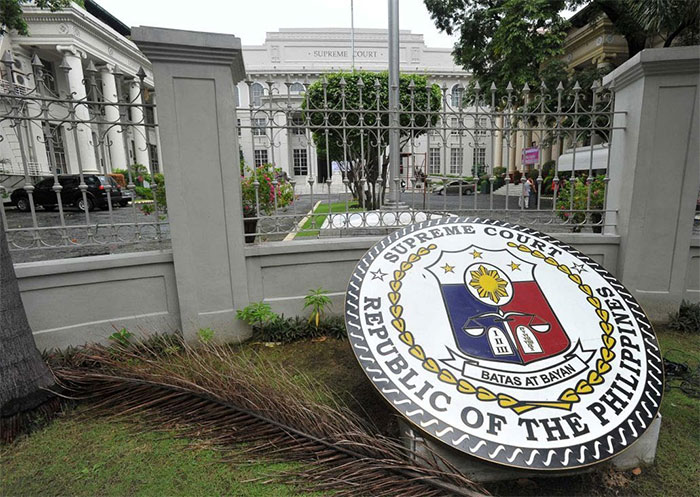
In a decision rendered on July 24, 2019 in G.R. No. 211044, Jacques A. Dupasquier et al. v. Ascendas (Philippines) Corporation, the Supreme Court (SC) clarified the doctrine of separability in arbitration (i.e., the arbitration clause is separate from the main contract and is not affected by its invalidity) and held that an arbitration clause terminates with the main contract, if the parties agreed on the termination.
The case arose from a Memorandum of Understanding (MOU) entered into by a group of persons known as the Net Group and Ascendas Corporation (Ascendas). The parties agreed that the MOU would be effective only until two calendar weeks after the signing of a Memorandum of Agreement (MOA) but in any case, not later than March 31, 2017. The parties stipulated that upon the termination or lapse of the MOU, the MOU would cease to be effective, save for its confidentiality clause.
However, the resolutory date came and went without the parties signing a MOA or extending the MOU. Consequently, the Net Group wrote Ascendas saying that they deemed the MOU to have lapsed as of April 1, 2017. Ascendas disagreed and told the Net Group that it would refer the dispute to arbitration pursuant to the arbitration clause in the MOU.
The Net Group filed a petition for declarator y relief on September 18, 2007, seeking judicial declaration that Ascendas’ demand to arbitrate was baseless and praying for a temporary restraining order (TRO) stopping the arbitration. The trial court granted the TRO application and, in due course, rendered a summary judgment declaring that Ascendas may not compel the Net Group to arbitrate. On appeal, however, the Court of Appeals (CA) reversed the trial court and held that that the arbitration clause remained operative despite the termination of the MOU.
In an opinion penned by Associate Justice Francis Jardeleza, the SC reversed the CA and ruled that the application of the doctrine of separability should be balanced with the manifest intention of the parties. According to the High Court, since the parties expressly agreed that save for the confidentiality clause, the MOU would be terminated upon the happening of a resolutory condition, the arbitration clause ceased to be effective upon the expiration of the MOU after March 31, 2007. (Irish Jhade G. Alimpolos)
 Supreme Court issues several opinions on arbitration in 2019
Supreme Court issues several opinions on arbitration in 2019
The Supreme Court, which usually refuses to disturb arbitral awards, has issued a flurry of opinions involving substantive and procedural issues.
Interest on sums awarded runs from date of arbitral award.
In a decision issued on April 10, 2019 in Philippine Commercial and International Bank (Now Banco De Oro Unibank, Inc.) v. William Golangco Construction Corporation (G.R. No. 195372) and William Golangco Construction Corporation v. Philippine Commercial and International Bank (G.R. No. 195375), the Second Division of the Supreme Court (SC) held that interest on sums awarded in arbitration begins to run from the date of the arbitral award.
The case arose from a request for arbitration filed by the Philippine Commercial and International Bank (PCIB) with the Construction Industry Arbitration Commission (CIAC), asking for reimbursement of repair expenses on the granite wash-out finish applied on PCIB Tower II’s external walls. PCIB claimed that William Golangco Construction Corporation (WGCC) botched the application of the original finish because it peeled off. WGCC counterclaimed for material cost adjustment
The CIAC held that PCIB was entitled to recover the cost of repairs, with legal interest of 6% per annum from the date of the award until fully paid. The arbitral tribunal likewise granted WGCC’s
counterclaim for material cost adjustment, with the same interest rate. Both PCIB and WGCC appealed the CIAC’s award.
The SC held on appeal in G.R. No. 142830 that WGCC was not liable for reimbursement and that PCIB was liable to WGCC for material cost adjustment. On remand, WGCC moved the CIAC to enforce the arbitral award, as modified by the SC judgment, including the payment of 6% per annum from June 21, 1996, the date of the CIAC award. In response, PCIB argued that interest should be counted only from April 27, 2006, the date when the SC decision on appeal became final.
The CIAC ruled in favor of WGCC. On appeal filed by PCIB, the Court of Appeals (CA) ruled that WGCC was entitled to 6% interest per annum on the principal award from the date of the CIAC award on June 21, 1996 until April 26, 2006, plus legal interest of 12% applicable to the entire award reckoned from the finality of the SC decision in G.R. No. 142830, until full payment.
On further appeal, the SC agreed with the CA that WGCC was entitled to compensatory interest reckoned from the date of the CIAC award. According to the High Court, the principal award stemmed from PCIB’s breach of its construction contract with WGCC, which was neither a loan nor a forbearance of money. Hence, the interest fell squarely within the definition of compensatory interest for breach of contract under Article 2210 of the Civil Code. The SC held that WGCC’s claim became liquidated on the date of the arbitral award.
Prohibition against forum-shopping applies to arbitration.
 In a decision released on June 3, 2019 in Villamor & Victolero Construction Company v. Sogo Realty and Development Corporation (G.R. Nos. 218771 and 220689), the Supreme Court (SC) ruled that Villamor & Victolero Construction Company (Villamor) was guilty of forum shopping when it filed separate petitions with the Court of Appeals (CA) to question an interlocutory order and the final award of the Construction Industry Arbitration Commission (CIAC).
In a decision released on June 3, 2019 in Villamor & Victolero Construction Company v. Sogo Realty and Development Corporation (G.R. Nos. 218771 and 220689), the Supreme Court (SC) ruled that Villamor & Victolero Construction Company (Villamor) was guilty of forum shopping when it filed separate petitions with the Court of Appeals (CA) to question an interlocutory order and the final award of the Construction Industry Arbitration Commission (CIAC).
The dispute arose from a complaint filed by Sogo Realty and Development Corporation (Sogo Realty) with the CIAC, asking for damages for defects in Villamor’s workmanship and deficiencies in the materials it used in constructing Sogo Realty’s subdivision, Ciudad Verde Homes.
Villamor moved to dismiss the complaint on the ground that the CIAC had no jurisdiction. The CIAC denied the motion. Villamor then filed a petition for certiorari with the CA, questioning the denial of its motion to dismiss and alleging grave abuse of discretion on the part of the CIAC.
When the CIAC subsequently rendered a final award in favor of Sogo Realty, Villamor filed a petition for review with the CA questioning the CIAC award and iterating the arbitral tribunal’s lack of jurisdiction. The CA, Special Tenth Division dismissed Villamor’s petition for review on the ground of forum shopping, but the CA, Fifteenth Division granted Villamor’s petition for certiorari, thereby vacating the CIAC award.
On appeal, the SC ruled that Villamor was guilty of forum shopping for filing two separate petitions questioning the CIAC’s jurisdiction. According to the High Court, these petitions “placed (the CA) in a quandary, making the possibility of two separate and contradictory decisions on the issue of the CIAC’s jurisdiction all too imminent and real.” In upholding the finding of forum shopping, the High Court held that both petitions filed by Villamor (a) questioned the CIAC’s jurisdiction (even if the CIAC was only a party in the petition for certiorari); and (b) entailed the production of the same evidence to prove the CIAC’s lack of jurisdiction. The SC likewise held that the CA’s final decision in one case would amount to res judicata in the other.
Arbitral tribunal may mitigate damages in case of mutual breach by the parties.
In a decision published on July 1, 2019 in G.R. No. 230645, Tondo Medical Center v. Rolando Dante, doing business under the name and style of JadeRock Builders, the Supreme Court (SC) held that an arbitral tribunal may mitigate the award of damages if the other party was likewise guilty of contractual breach.
The case arose when JadeRock Builders (JadeRock) failed to complete construction work for Tondo Medical Center (TMC) despite extension, resulting in TMC’s termination of the contract, blacklisting of JadeRock, and forfeiture of JadeRock’s performance security. JadeRock filed a request for arbitration with the CIAC, but the arbitral tribunal upheld TMC’s termination of the contract. However, the CIAC still awarded monetary claims to JadeRock based on its contract with TMC.
When the case reached the SC, the Tribunal, through Associate Justice Jose Reyes, upheld the CIAC’s award of monetary claims to JadeRock even if the latter breached its contract with TMC.
The High Court applied Article 2215 of the Civil Code and held that an arbitral tribunal may equitably mitigate an award of damages when “the plaintiff himself has contravened the terms of the contract” and in analogous cases where the other party was equally guilty of breach. The SC upheld the CIAC’s monetary award in favor of JadeRock to prevent unjust enrichment on the part of TMC because the latter likewise failed to perform its contractual obligations.
